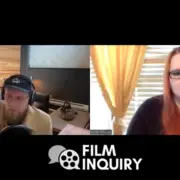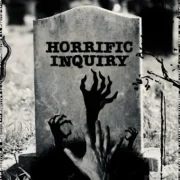Searching For the Female Experience: An Interview with Deborah Kampmeier, Writer/Director Of TAPE
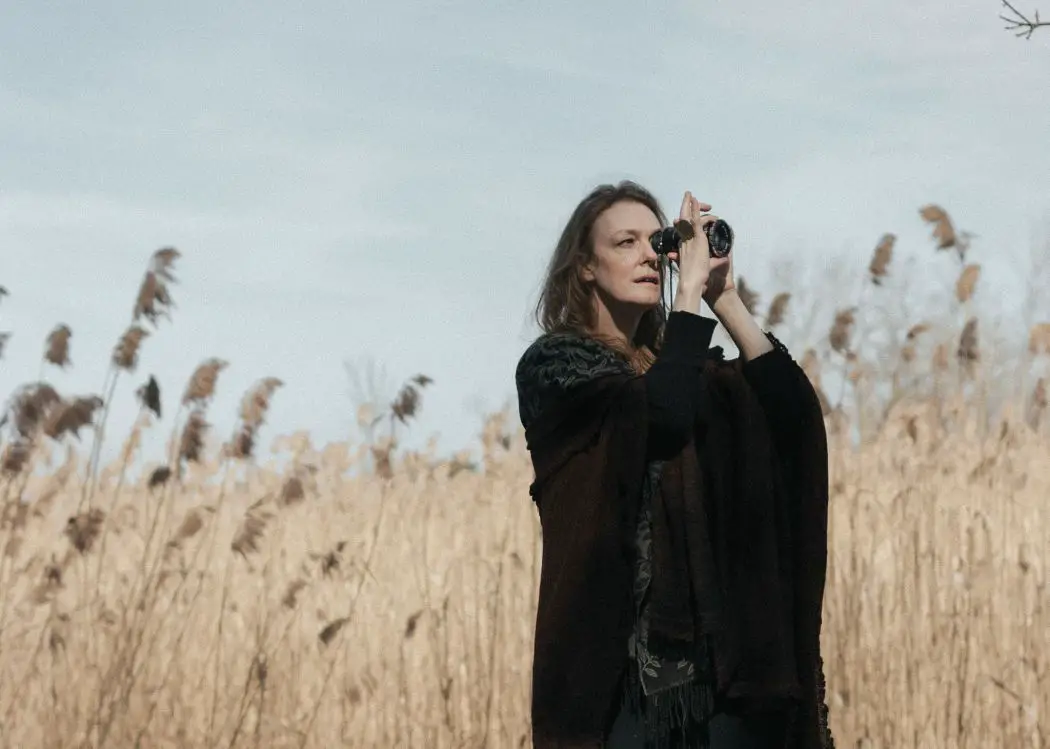
Jax is a filmmaker and producer, and a film &…
It’s a chilly Tuesday night, and it’s raining because it’s England and that’s what England does. Four hours behind me, on the continent and in the country I had just left, Deborah Kampmeier waits in New York for me to call her. We’ve known each in some capacity for more than ten years, and I’ve done an interview with her for Film Inquiry about her previous film Split (2016). Today, she’s just come back from a retrospective of her work at the Female Eye Film Festival in Toronto (which is actually where she and I first met all those years ago) and is in the process of gearing up for the release of her latest film Tape.
An award-winning director, Kampmeier has made four feature films, including Tape, and recently moved into television, directing episodes of Cherish the Day and Queen Sugar. She lives and works primarily in New York, which is where Tape was filmed and where she runs her company Full Moon Films, which is dedicated to making films about and by women. This ethos is inescapable in her work, which leaves many viewers (let’s face it, many men) feeling uncomfortable if not downright angered by her films. This, in particular, endears me to her.
I make the international call and Deborah answers with her trademark warmth and, despite her passion and seriousness, the slightest touch of whimsy in her voice, which is both disarming and delicately unnerving. There’s always an air of magic when you speak with Deborah (and to be fair, she appeared in a New Yorker photo booth article by Naomi Fry called “The Many Faces of Women Who Identify As Witches”) and I feel like she’s always got something up her sleeve ready to bowl me over with (like when she dropped the bombshell on me that she attended prom with RuPaul). I always enjoy my talks with her. After some pleasantries and a bit of brief catching up, we dive into her recent screenings at The Female Eye Film Festival…
This interview has been edited for time and clarity.
Jacqui Griffin for Film Inquiry: I feel like you’re quite a self-aware filmmaker, but watching all of your films back to back (at the Female Eye), did anything come to the surface or come to light that maybe you weren’t expecting?
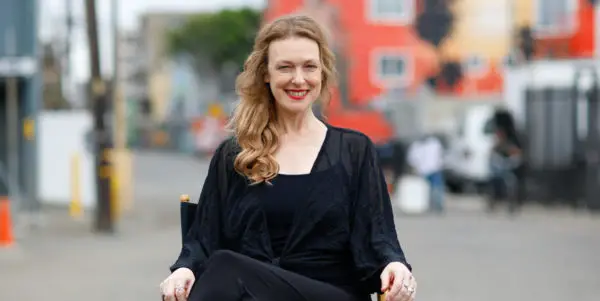
Deborah Kampmeier: You know, it’s so funny. I guess all the themes are there. But the way that I express them had some repetition that I was just not conscious of. For example, I knew in Virgin that I shot this scene, where she gives birth next to the river, where I created the last shot of Inanna climbing up the mountain [in Split]. We were super low budget both times and that was the location I could get. So I knew that we were using the same location. It’s not like I didn’t know that. But when I saw the two films, there’s literally the exact same shot and it was like, “Wait, that’s like literally the exact shot in both.”
And then the same thing happened in Virgin and Hounddog where it was literally the exact same line. I understand I’m exploring similar themes. They’re in very different moments in the progression of the story, but in both Hounddog and Virgin they say the line to my protagonists, “I believe God speaks to people in all sorts of ways.” It’s the exact same line.
It had been 17 years for Virgin and 12 years for Hounddog since I’ve seen them. And you know, these films were so attacked, and I was so personally attacked for them. To be able to go back, I had a very emotional experience of having a great deal of compassion for my younger artist’s self that just had my cowboy boots on with a f*ck ‘em all kind of attitude and got myself through it and continued doing my work. I just felt so much compassion for that younger artist in myself and I loved the films and they gave me and I always loved them, but I loved them in a very immediate personal way before. Now, I will love them as a proud parent kind of thing. And they give gave me confidence. It was like I was right about what I thought about them. And that’s really cool to know.
That must have been very validating.
Deborah Kampmeier: Yeah, it was incredible. Powerful. What was really interesting to me was the audience was so different that watched these films. For Virgin we had a ton of young, early 20s women. They dug it so much. It was so cool to feel that it was very immediate for them. I’ve thought a lot after the Brock Turner incident and court case and all the bullshit around that and then Chanel Miller’s amazing coming out in her book that Virgin should be released right now. Brock Turner rapes her when she’s unconscious and Jesse’s raped when she’s unconscious, and it felt so timely.
And I think in a funny way, this style of filmmaking it’s much more current in terms of the handheld and the fast sort of movement of the camera. I remember at the time people walked out because they said they felt nauseous and it made them want to throw up, it was like a roller coaster ride. And no one walked out of this one and it felt like it was very contemporary.
I was very struck by how the last scene in Tape reminded me of the scene in Split.
Deborah Kampmeier: That circle of women speaking?
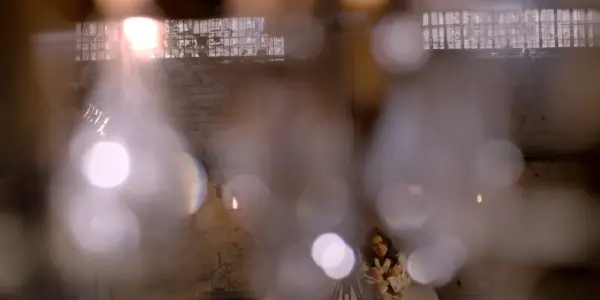
Yes.
Deborah Kampmeier: Yeah, it’s been very interesting because both earlier test screenings and now at the Female Eye Film Festival for our world premiere, as soon as the film’s over, what happens in that cafe with the women starting to share stories is literally what happens after the screening. After the film, nine women came up to me before I can even get out of the theatre. Telling me their story. One in tears, an older woman sobbing. I had to hold her in my arms in a good way, right? It wasn’t like, oh, she felt valitaded, she felt grateful. But that has been our experience at every single test screening is that the film itself generates what happens in that last scene as it comes out of the theatre.
Do you think women are so struck by your films because you achieve a female gaze?
Deborah Kampmeier: I’m really interested in and I make a great deal of effort to find a cinematic language that is shifting from the male gaze, but not interestingly, to the female gaze, which is what I hear people often talk about, but to the female experience. Because for me, and I mean, look, I’m not speaking for all women, I can only speak for myself, but I can say my friendships with women have led me to believe that it could include more women than myself. And that is that, you know, I don’t go through life gazing upon it. I go through life and I experience it viscerally and emotionally.
I spoke about it when I made Virgin as trying to find the movement between inner life and outer life and which of those was more true. And that I felt women moved between those two realities very intuitively and quite freely. I think that was my way of beginning to try to figure out the language for this theme that I was trying to grasp, and I feel Tape has gotten the closest out of all of my films. I’ve been really trying to capture or at least search for the female experience.
I had set up three different cameras – there was the camera of the producer, which is the male gaze, there was the camera of the hidden camera of the actress which was searching for the female experience, and then there was my film camera as the director, which I take into that room primarily. And primarily I’m using that hidden camera in the beginning because I just wanted to try to create the effect of searching for the female experience and really have the audience viscerally experience how difficult it is to find, to capture, to know the female experience. I was trying to capture that through the difficulty of finding focus. And I feel like it really pays off.
At the end when Pearl looks right into that clock, after we’ve been hearing her performance, what we would expect to see is the male gaze, instead what we see is the female experience in that moment. That’s what I’m leading to through the whole film is that moment where we hear the sex acted out. And then we see her eyes and see her soul. We see the experience she’s going through. For me, that was what it was all about. To really try and reveal that.
Did Weinstein and the #MeToo Movement have anything to do with Tape?
(Note: The next section contains major spoilers for Tape.)
Deborah Kampmeier: So there’s multiple pieces to this answer. And I think the first is that I wrote this script in 2016. Prior to the #MeToo Movement. Prior to the Harvey Weinstein news story breaking. And it’s based on my dear friend Annarosa Mudd’s experience. (note: Mudd came forward with her story recently in the New York Times and this piece by Kampmeier in TalkHouse) We were working together on a script and I gave her a timed writing exercise which she then read back to me. “I’m afraid if I become famous, or if I am in the public eye, a tape will surface.”

I said, “Tell me more,” and this story poured out of her. She had not told anyone except one other person when it first happened. It had been six years since the event had occurred. And she just poured it out. Of course, it taps into my own narratives, so I was deeply moved by it. And I said to her, “I think you should go to therapy and talk to someone about all this. And after you do that, would you consider letting me make it into a film?” So she did that she went to therapy, and she came back three months later, and she said, yes, you can make it. So, I recorded her telling me the whole story again. I wanted it again from beginning to end. She also proceeded to send me email correspondence that she had with this person – they’re insane – and much of his dialogue comes from these emails.
And then, after I had recorded the whole thing I said to her, so what would you like to have happened to this guy? This, she said, I’d like him publicly humiliated. And Rosa became her revenge fantasy.
We had financing together and started pre-production in 2016. And then our financing fell out one week into pre-production. We could not get financing back together until after #MeToo and the Harvey news broke. And I remember us feeling devastated that we hadn’t gotten the film made because it felt so timely, as it happens, it keeps becoming more and more timely.
So it was post #MeToo and Harvey Weinstein that we were able to bring on an investor because he said he had been reading all of these stories of women sharing their experiences, and he just could not understand how it happened. All these stories in relation to Harvey, we couldn’t understand how it happened. And then when he read our script, he understood and he wanted other people to understand as well and he felt it was important for them to get out.
In Tape, it’s pre-#MeToo, and in the end, she shot him and the women in the coffee shop cover for her. They wipe down the gun they put it in his hand so it looks like he committed suicide and they let the women escape before the police get there. And the reason was that pre-Harvey pre-#MeToo there really was this feeling like nothing f*cking changes ever. And there’s nothing you can do but shoot the motherf*cker.
We’re now post #MeToo, suddenly we felt like oh, things are actually starting to change. And women are able to tell their stories and they’re being believed. And we no longer had to kill him. In fact, we realised it wasn’t honest to kill him because I feel my friend never would kill him. And that’s what happened post #MeToo. And that’s how our film ends now, which I liked much better.
A lot of what you’ve been saying sounds significantly more hopeful than when you and I talked for Split. Do you think that things are changing?
Deborah Kampmeier: I think they are. I think there’s a long way to go. But they are changing. And they’re changing, I think primarily because of the internet and the way we can connect to each other social media. All of this is part of how we’ve been able to create an army of women who are willing to speak their truth because they have other women to back them up. A woman alone is taken down just like the video is taken down, but women who are connected and no longer isolated are quite powerful. And I think that shift is happening.
I think the thing about our film you know, that is different in a way than the #MeToo Movement is that I think the #MeToo Movement can sometimes be black and white, where it’s like, oh, she was raped or she was not raped. Now, the Weinstein case and the sentencing broke that apart. That was a very grey area. It was an area where a woman was raped and then continued to have sex with her perpetrator, which is confusing to a lot of people. So the fact that we got the verdict, which of course was lighter than I think we all hoped, but it was a game-changer. That it was the grey area and it still was seen as a crime is incredible. And I feel like that’s what we’re doing with this film. It’s exploring the grey area and hopefully expanding the definition of sexual assault to include coercion. You don’t have to be the perfect victim to have your truth honoured.
And also, I think that film is dealing with, you know, the cases we’ve heard about now, whether it’s Weinstein or, Polanski, or Cosby, or Woody Allen – those are all high profile men who, you know, most women aren’t going to come in contact with. However, I believe there are a great deal of men coercing women who are not famous and there are a great deal of women who are not yet name actresses, everyday women. And this man in the film, and I think men oftentimes in positions of power, weaponize our ambition and our dreams and use them against us.
Film Inquiry thanks Deborah Kampmeier for taking the time to talk with us.
Tape premiered online on March 26th at tapevirtualpremiere.com and will be available to watch at that link for two weeks following the premiere, alongside special daily conversations. Tape will also be released on Video on Demand on April 10th.
Does content like this matter to you?
Become a Member and support film journalism. Unlock access to all of Film Inquiry`s great articles. Join a community of like-minded readers who are passionate about cinema - get access to our private members Network, give back to independent filmmakers, and more.
Jax is a filmmaker and producer, and a film & tv production lecturer at the University of Bradford and is also completing a PhD about Stan Brakhage at the University of East Anglia. In the remaining "spare time", Jax organises the Drunken Film Fest, binges bad TV, and dreams of getting “Bake Off good” with their baking.







